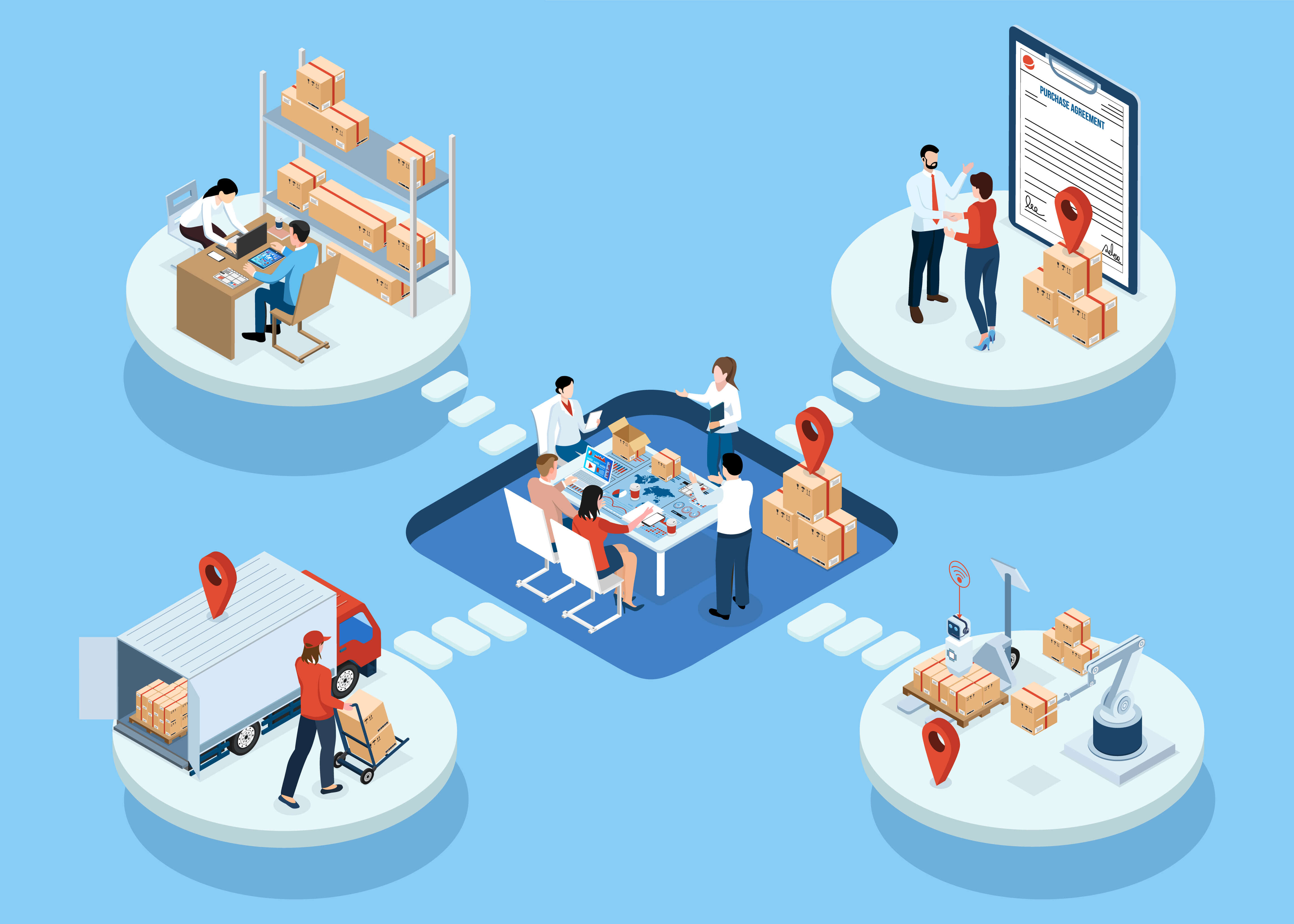
Logistics
Is Your LaaS Partner Enterprise-Ready? A Strategic Framework for Vendor Assessment
Discover how to choose the right LaaS partner for e-commerce and food retail. Ensure speed, compliance, and customer satisfaction in every delivery with Lyzer.

How to Choose the Right LaaS Partner for E-Commerce and Food Retail
When customers order online, they expect it fast, fresh, and exactly as promised. This applies whether it’s fresh produce, a gourmet meal kit, or a new pair of running shoes. In e-commerce and food retail, the way you move products from checkout to doorstep is no longer a background operation. It’s part of the experience they remember.
That’s why forward-thinking retailers partner with companies like Lyzer. By combining advanced data insights with seamless logistics integration, Lyzer helps businesses deliver more than packages. They give them peace of mind by turning every order into an opportunity to strengthen customer loyalty.
But the true is not all LaaS partners are created equal. Choosing the right one means looking beyond cost and speed, and finding a partner who understands your business, your customers, and the unique challenges of your market.
So, we are talking about a strategic framework for assessing LaaS vendors in the context of retail, e-commerce, and food retail. These are industries where customer expectations for delivery are higher than ever.
Why the Right LaaS Partner Matters in E-Commerce and Food Retail
In retail and food delivery, the supply chain is the brand. Your customers don’t see your warehouse, your transport routes, or your order management systems. Instead, they see the speed, reliability, and care with which their order is fulfilled.
A high-performing LaaS partner:
- Delivers consistency across high-volume and peak-demand periods.
- Understands industry nuances, whether it’s compliance with food safety regulations or handling high-value retail products.
- Supports rapid scalability, enabling you to expand markets or handle seasonal surges without disruption.
- Integrates technology that keeps you and your customers informed in real time.
The wrong choice? Missed delivery windows, poor communication, and a customer experience that sends shoppers straight to your competitors.
The Strategic Framework for Vendor Assessment
Vendor assessment is more than a procurement formality. It’s your safeguard against operational bottlenecks and brand damage. Below are the pillars to evaluate when selecting your LaaS partner, specifically for the realities of e-commerce and food retail.
1. Operational Fit: Beyond the Basics
Every logistics provider promises to deliver packages on time. The real question is: Can they deliver on your terms?
For food retail, this might mean strict adherence to temperature control during last-mile delivery. For e-commerce, it could be the ability to handle fragile items, same-day deliveries, or complex return processes.
Ask:
- Do they have experience in both retail and perishable goods logistics?
- Can they handle the service-level agreements (SLAs) you require, even during peak sales periods?
- How do they respond to unexpected disruptions like traffic delays, weather events, or route changes?
2. Technology Integration: The Real-Time Advantage
In fast-paced e-commerce, visibility is everything. The ability to track orders in real time, predict delivery times, and communicate with customers is no longer a luxury—it’s a baseline expectation.
A tech-enabled LaaS partner should offer:
- API integration with your e-commerce platform for seamless order handoffs.
- Real-time tracking visibility to both your operations team and your customers.
- Automated alerts for delays or changes in delivery status.
For food retail, this can also mean sensors and monitoring for temperature control, ensuring compliance with food safety standards from departure to doorstep.
3. Scalability and Flexibility: Preparing for Tomorrow’s Demand
Consumer behavior changes quickly, sometimes even overnight. A promotional campaign can trigger a surge in orders. A new market launch can double your delivery volume.
Your LaaS partner should:
- Scale up resources quickly without compromising service quality.
- Offer flexible delivery models, including same-day, next-day, or scheduled deliveries.
- Support multi-channel fulfillment for both direct-to-consumer and B2B retail deliveries.
In food retail, the stakes are even higher. A delay in scaling capacity during high demand can mean spoiled goods and wasted revenue.
4. Compliance and Risk Management: Protecting Your Brand
From food safety regulations to consumer protection laws, compliance isn’t negotiable. Actually, it’s critical to your brand’s trustworthiness.
When assessing vendors, look into:
- Their certifications and training for drivers and handlers.
- How they handle risk assessments for each delivery category.
- Protocols for handling damaged goods, service failures, or customer complaints.
For food retail, the margin for error is minimal. One compliance failure can lead to regulatory fines and lasting reputational damage.
5. Customer Experience Alignment: Your Brand in Their Hands
A LaaS provider becomes the face of your brand at the point of delivery. They are often the only in-person touchpoint between you and your customers.
Evaluate:
- How drivers present themselves: professionalism, courtesy, adherence to delivery protocols.
- Their ability to offer value-added services, such as delivery confirmations, proof of delivery, or contactless drop-offs.
- Customer feedback loops. Do they capture and share delivery experience data with you?
In this business, personal touch matters even more. A friendly, professional delivery experience can turn a first-time buyer into a loyal customer.
6. Data and Analytics Capability: From Reports to Action
Choosing a LaaS partner isn’t just about moving goods. It’s about generating insights.
Look for providers that offer:
- Delivery performance dashboards with KPIs like on-time percentage, delivery accuracy, and customer satisfaction.
- Route optimization data to reduce delivery times and costs.
- Post-delivery analytics that help you identify bottlenecks or recurring service issues.
In e-commerce and food retail, this data can directly inform marketing strategies, product offerings, and customer loyalty initiatives.
7. Financial and Contractual Transparency: No Surprises
Hidden fees, ambiguous service terms, or rigid contract structures can turn a promising partnership into a liability.
Key considerations:
- Detailed breakdown of costs, including surcharges for peak times or specialized handling.
- Flexible contract terms that allow adjustments based on business needs.
- Clear SLAs with measurable performance standards and penalties for non-compliance.
The Vendor Assessment Process in Action
To put this into practice, consider a structured evaluation process:
- Define Your Requirements – List your non-negotiables for service quality, compliance, and technology.
- Shortlist Vendors – Use your requirements to filter out providers who can’t meet your baseline.
- Request Proposals and Case Studies – See evidence of success in retail and food delivery scenarios.
- Conduct Pilot Runs – Test performance in real-world conditions before committing.
- Evaluate Performance Data – Use objective metrics to assess delivery times, customer satisfaction, and SLA compliance.
- Negotiate Terms – Secure transparent, flexible agreements that protect your interests.
- Monitor Continuously – Treat vendor assessment as an ongoing process, not a one-time event.
The Future of LaaS in E-Commerce and Food Retail
As customer expectations grow, so does the pressure on logistics providers to deliver faster, smarter, and more sustainably. For retailers (especially in the food sector) choosing a LaaS partner is no longer a procurement decision. It’s a strategic move that shapes your brand’s competitive edge.
The winners in this space will be those who see logistics not as a back-end function but as a customer-facing service: integrated, data-driven, and relentlessly optimized.
Selecting the right LaaS partner can feel complex, but with a clear framework, you can make an informed choice that protects your brand and delights your customers.
Remember: Optimize your supply chain. From order to doorstep. It’s not just a slogan. It’s a promise you make to every customer who trusts you with their purchase. Choose a partner who can keep that promise every time.
Book a Demo with Lyzer.
References:
Discover the right solution for your challenges
Contact Lyzer to learn more about our innovative logistics solutions.

